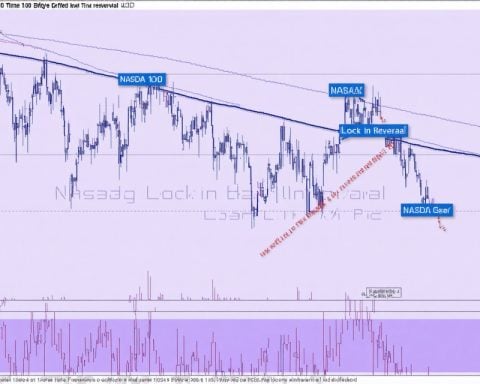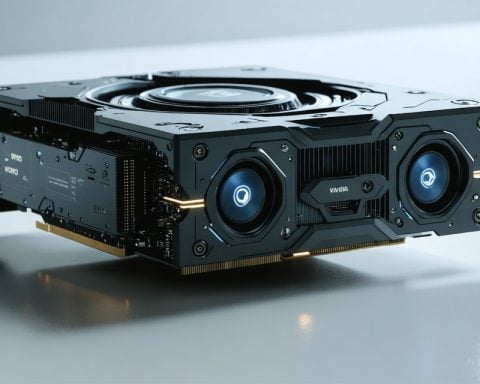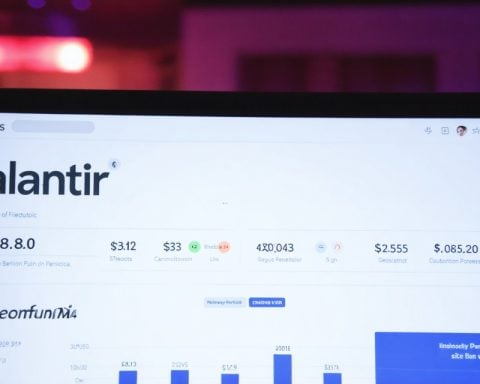In an impressive financial move, Nokia has significantly ramped up its share buyback initiative. Despite unpredictable market conditions, the company has successfully repurchased over 2.26 million shares. This repurchase was executed at an average price of 4.24 euros per share on 15 November 2024.
This stock buyback is a key part of Nokia’s overarching strategy aimed at returning substantial value to its shareholders. With an ambitious goal set to return up to 600 million euros by the end of 2024, Nokia is clearly focused on bolstering shareholder relations and confidence.
At present, Nokia owns approximately 199.4 million shares of its own stock. This accumulation underscores the company’s dedication to enhancing shareholder value through strategic financial maneuvers. By significantly increasing their shareholdings, Nokia is committed to offering increased value back to its investors.
For those keeping a close watch on Nokia’s financial moves and stock performance – particularly under its ticker symbol GB:0HAF – further details and updates can be explored through comprehensive resources like the TipRanks’ Stock Analysis page.
Engaging counter-strategies like these often result in more substantial investor trust and can serve as a catalyst for future growth and stability. As markets continue to evolve, Nokia’s decisive steps in the stock realm might set a precedent for companies looking to maintain strong stakeholder relationships.
The Share Buyback Boom: How Nokia’s Financial Strategy Influences Broader Markets
Nokia’s Stock Buyback: A Game Changer or Business as Usual?
In an era where corporate strategies heavily depend on robust financial maneuvers, Nokia’s recent share repurchase initiative marks a significant chapter in its financial narrative. While the repurchase of over 2.26 million shares on 15 November 2024 illustrates Nokia’s aggressive stance in returning value to its shareholders, it also raises several questions. What does such a large-scale buyback mean for various stakeholders, and how could it set a new trend in corporate finance?
The Broader Impact on Communities and Markets
Across the globe, corporate buybacks have become a popular avenue for organisations to manage their capital. By opting to buy back shares, Nokia, like many companies, has chosen to reinvest in itself rather than expand operations or increase dividends. This strategy, while bolstering shareholder confidence and potentially driving up share value, can have a mixed impact on communities and the broader market.
On the one hand, share buybacks can lead to reduced volatility and instil investor confidence, which might temporarily stabilise a company’s stock. This can boost local economies where stakeholders reside, offering a sense of financial security and potential growth in pension funds tied to stock performance.
However, the flip side is that money funnelled into buybacks is capital that isn’t used for innovation or workforce expansion. Critics argue that this could stunt economic growth or delay technological advancements, particularly when companies prioritise share price over long-term research and development or job creation.
Examining the Advantages and Disadvantages
What are the notable advantages and drawbacks of Nokia’s strategy? Here’s a quick breakdown:
Advantages:
– Increased Share Value: A direct benefit for shareholders as the diminished supply could raise the stock’s market price.
– Enhanced Investor Confidence: By investing in their own shares, companies signal confidence in their growth prospects.
– Tax Efficiency: For investors, buybacks can be tax-efficient compared to dividends.
Disadvantages:
– Reduced Investment in Growth: Capital used for buybacks could have been invested in long-term strategic projects.
– Market Manipulation Concerns: It may lead to artificial inflation of stock prices.
– Benefit Distribution: Mainly benefits investors at the expense of wider community or employee-centric investments.
Intriguing Questions and Answers
Q: Could Nokia’s buyback trend inspire similar strategies in other sectors?
A: It’s highly likely. As industries closely monitor market leaders, successful models like Nokia’s might encourage emulation, particularly in tech and manufacturing companies seeking investor trust.
Q: Are buybacks here to stay or a passing phase?
A: While market conditions massively influence the prevalence of buybacks, regulatory changes and shareholder expectations will play key roles in determining their permanence.
Final Thoughts and Exploration
Nokia’s strategic financial decisions not only impact its immediate stakeholders but also ripple across economic and corporate landscapes. As we witness more companies considering this route, the dialogue around long-term impacts of buybacks becomes critical.
For those interested in diving deeper into similar strategic financial approaches and Nokia’s market positioning, resources such as Reuters offer comprehensive insights into the corporate sector’s maneuvers and analyses.

















